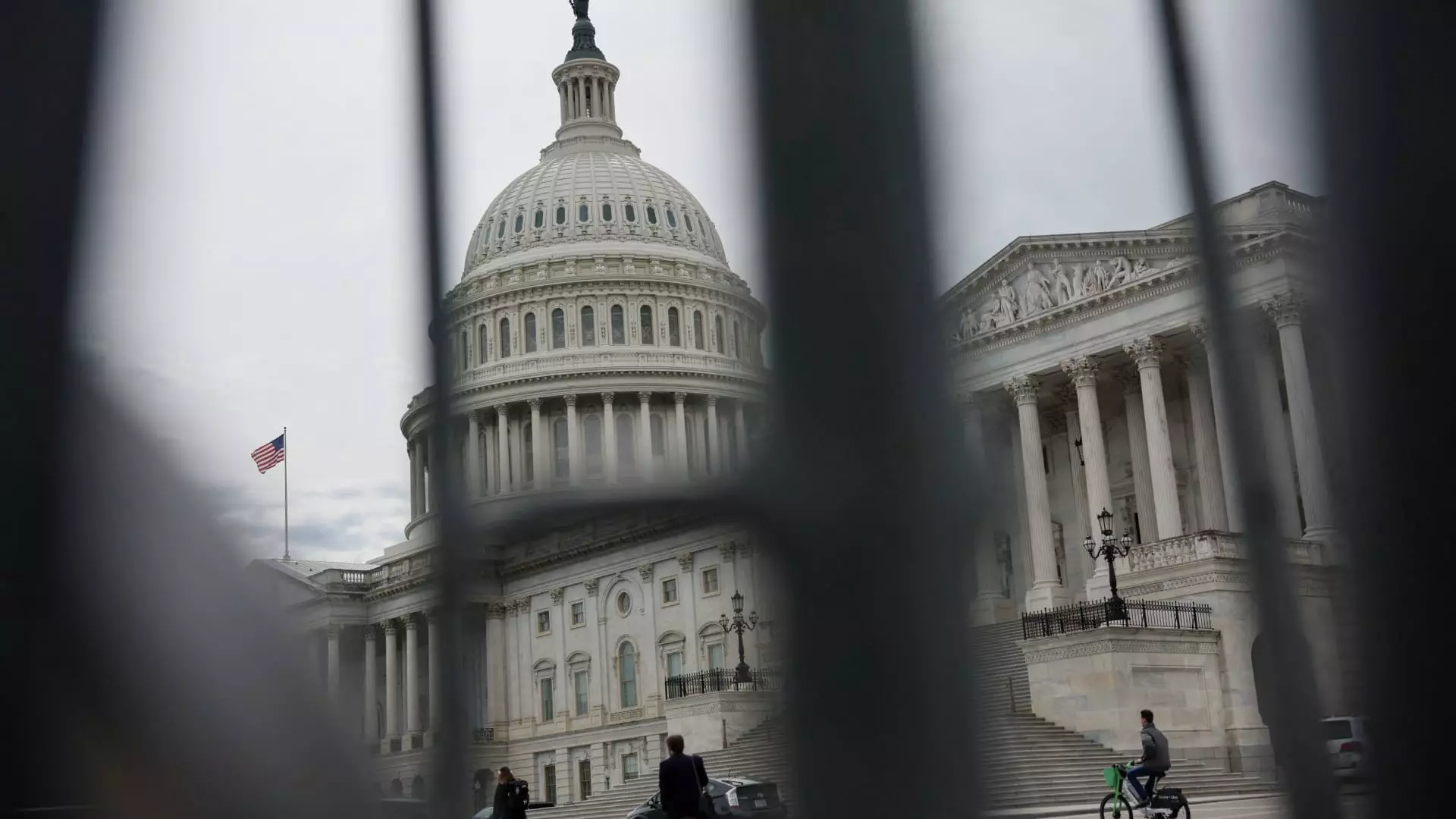Recently, the U.S. Senate propelled itself into a perilous fiscal narrative by endorsing a Republican budget that seeks to extend the controversial tax cuts initiated during Donald Trump’s presidency. This budget blueprint, passed during a marathon session, reveals the troubling trajectory of American fiscal policy, which prioritizes taxable income for the wealthiest Americans at the expense of crucial social programs. More alarmingly, analysts project that if fully realized, this blueprint could inflate the national debt by an astronomical $5.7 trillion over the next decade. Such reckless disregard for fiscal responsibility raises red flags for the health of our economy and the welfare of vulnerable citizens.
It is imperative to dissect the motives behind such a proposal. Proponents, including Senate Republicans, claim that the eventual cost is only $1.5 trillion based on a skewed interpretation of tax policy expiration. This argument is not only misleading; it dismisses the real implications of extending tax breaks for the affluent. Taxation is a critical component of revenue generation for sustaining social programs that serve millions, and any move that jeopardizes this balance invites scrutiny and indignation from all sectors of society.
Government Spending: Balancing Act or Imminent Collapse?
The budget plan is anchored on the precarious idea of simultaneously extending tax cuts while slashing government spending, an approach that many have characterized as contradictory at its core. The Republicans present this as a deft maneuver—raising the debt ceiling while experiencing purported fiscal prudence. However, the impending likelihood of $880 billion in cuts to Medicaid, a lifeline for low-income Americans, exposes the hollowness of this strategy.
Senate Democratic Leader Chuck Schumer’s vehement opposition highlights a likely consequence: these cuts could significantly undermine programs that vulnerable populations depend on. Slashing Medicaid while advocating for tax relief that largely benefits the upper class not only embodies a glaring inefficiency but also a blatant moral failing. This is not merely a question of finance but ethical governance. Our society is defined by how we protect and uplift those in need, and this budget plan veers dangerously close to abandoning that ideal.
The Bipartisan Battle: A Discourse on Values and Priorities
Another layer to this debate is the division between those advocating for fiscal conservatism on principle and those who embrace it as a strategic tool to favor the wealthy. Indeed, Senator Rand Paul’s dissent encapsulates this existential crisis: are we genuinely enacting cost-saving measures, or are we steering our economy toward deeper indebtedness while being selective about who shoulders the burden?
The unanswered question remains: what does fiscal responsibility truly look like in an era defined by wealth disparity? The chaos surrounding the budget plan suggests that neither side is willing to engage sincerely in a productive discourse. Instead, we witness an incessant tit-for-tat where minority voices advocating for social security and veterans’ care are snuffed out in a procedural game designed for political gain.
This is not merely about the Republicans’ plans to reshape the fiscal landscape but highlights a failure to prioritize American values such as equality, justice, and compassion. The sneaky maneuvers by those in power to pass bills that cater to the elite distract from the fundamental premise of democracy: representation for all.
The Shadow of Economic Consequences
The backdrop of these discussions is an unsettling economic climate, exacerbated by Trump’s aggressive trade tariffs that have directly impacted the stock market. Economic forecasts indicate that a recession may loom, a specter that sends shivers down the spines of every American, particularly as the Democrats’ proposed amendments to protect vital social programs stand largely ignored.
We find ourselves at a crossroads where decisions made today will resonate through generations. The prospect of further decreases to already stretched social services, particularly healthcare, is alarming. Advocating for a budget that fundamentally transforms the framework of America’s safety net is not a matter of mere fiscal policy; it carries profound implications for the fabric of society itself. Once again, as history has shown, the burden of economic shifts often falls disproportionately upon those least able to bear it.
The dire need to reclaim an equitable approach to budgetary policymaking is essential. We must challenge the prevailing narrative that austerity is synonymous with strength. Instead, we should encourage a vision where responsibility harmonizes with compassion— and this budget plan is a stark departure from that ethos.


Leave a Reply